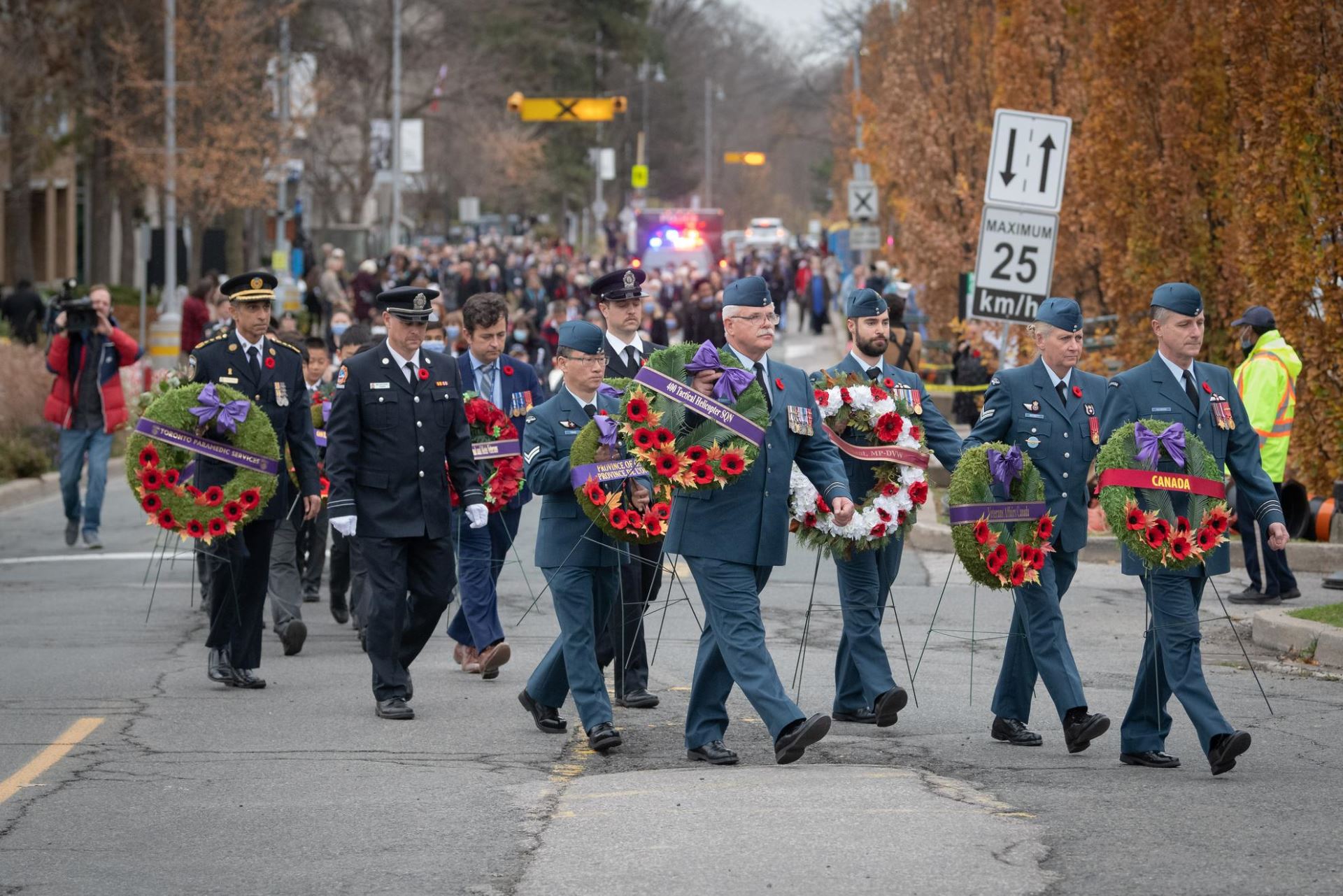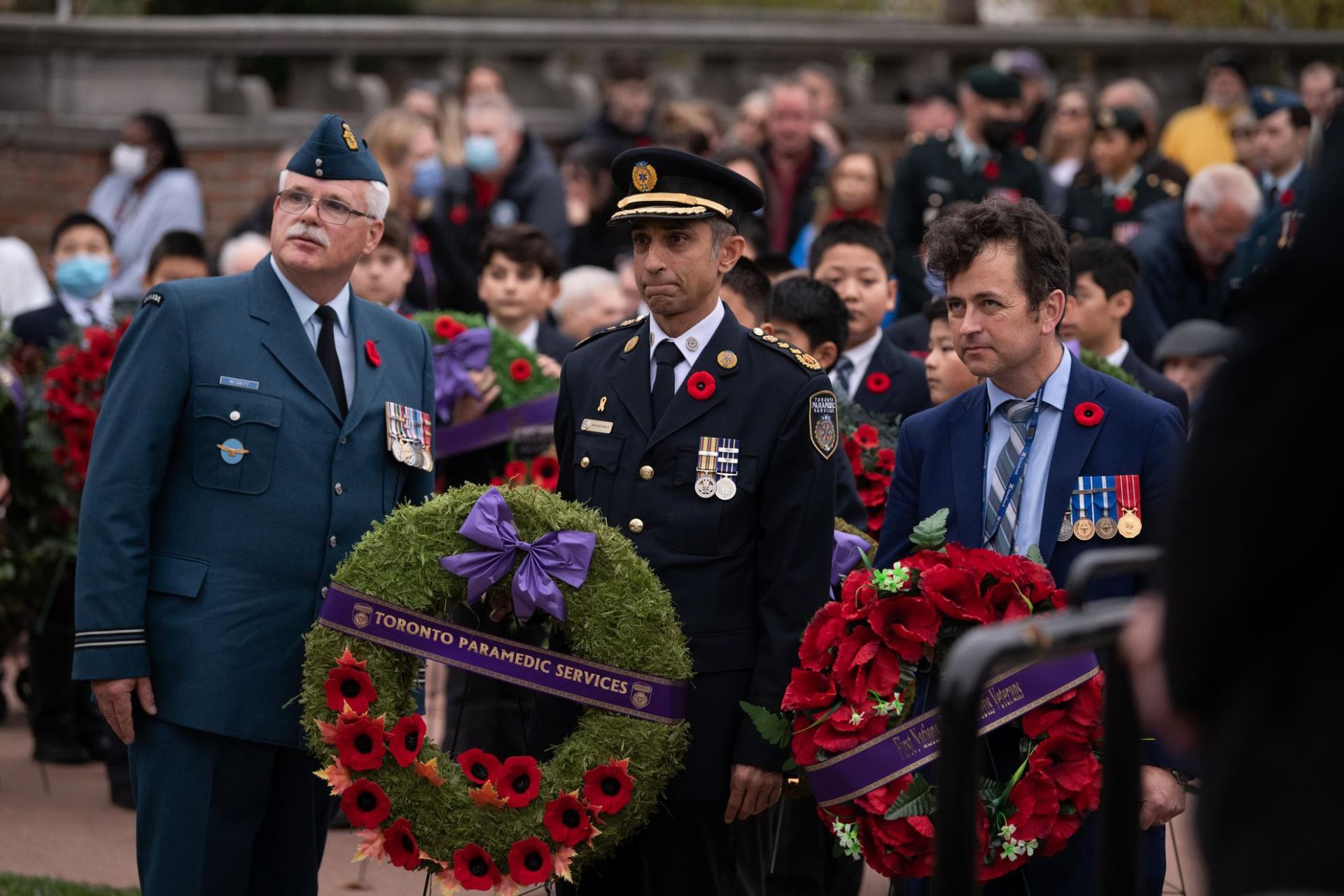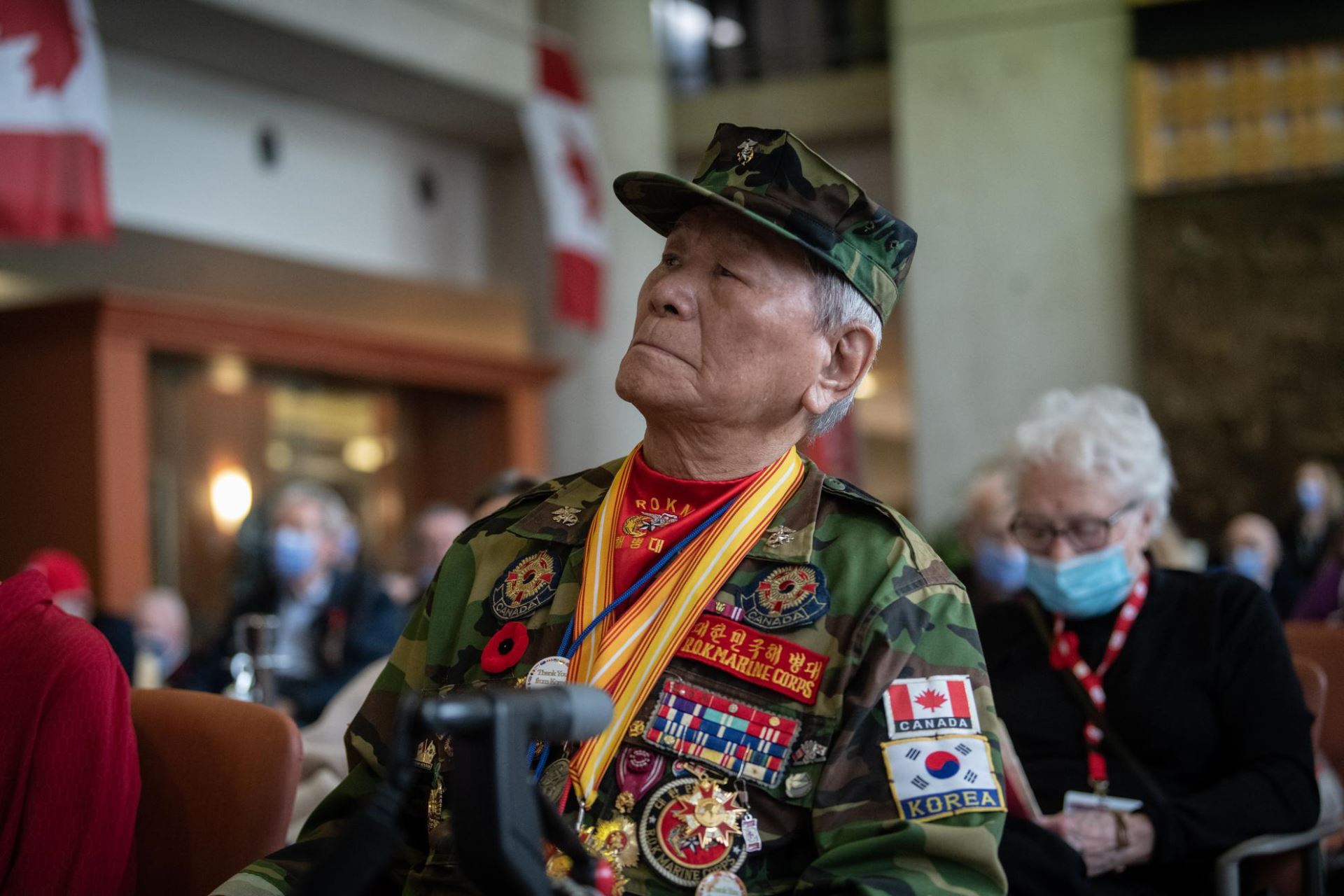In Photos: Remembrance Day at Sunnybrook's Veterans Centre

On November 11, Canadians honour and thank the Veterans who sacrificed so much for us.
At Sunnybrook’s Veterans Centre, Remembrance Day ceremonies were held to honour our brave Veteran residents.
As part of Operation Raise a Flag, Canadian flags, as well as artwork designed by Indigenous artist Philip Cote, were planted around the hospital campus to show thanks to our Veterans, and to honour the sacrifices and contributions made by First Nations, Inuit and Métis Veterans in service to Canada.
View photos from the ceremonies below.
Lest we forget.
Operation Raise a Flag
In preparation for Remembrance Day, flags were planted at our Bayview Campus for Operation Raise a Flag. As the largest Veterans’ care facility in Canada, Sunnybrook offers long-term and complex hospital care for Veterans. Operation Raise a Flag helps to raise funds to support our Veterans Program.
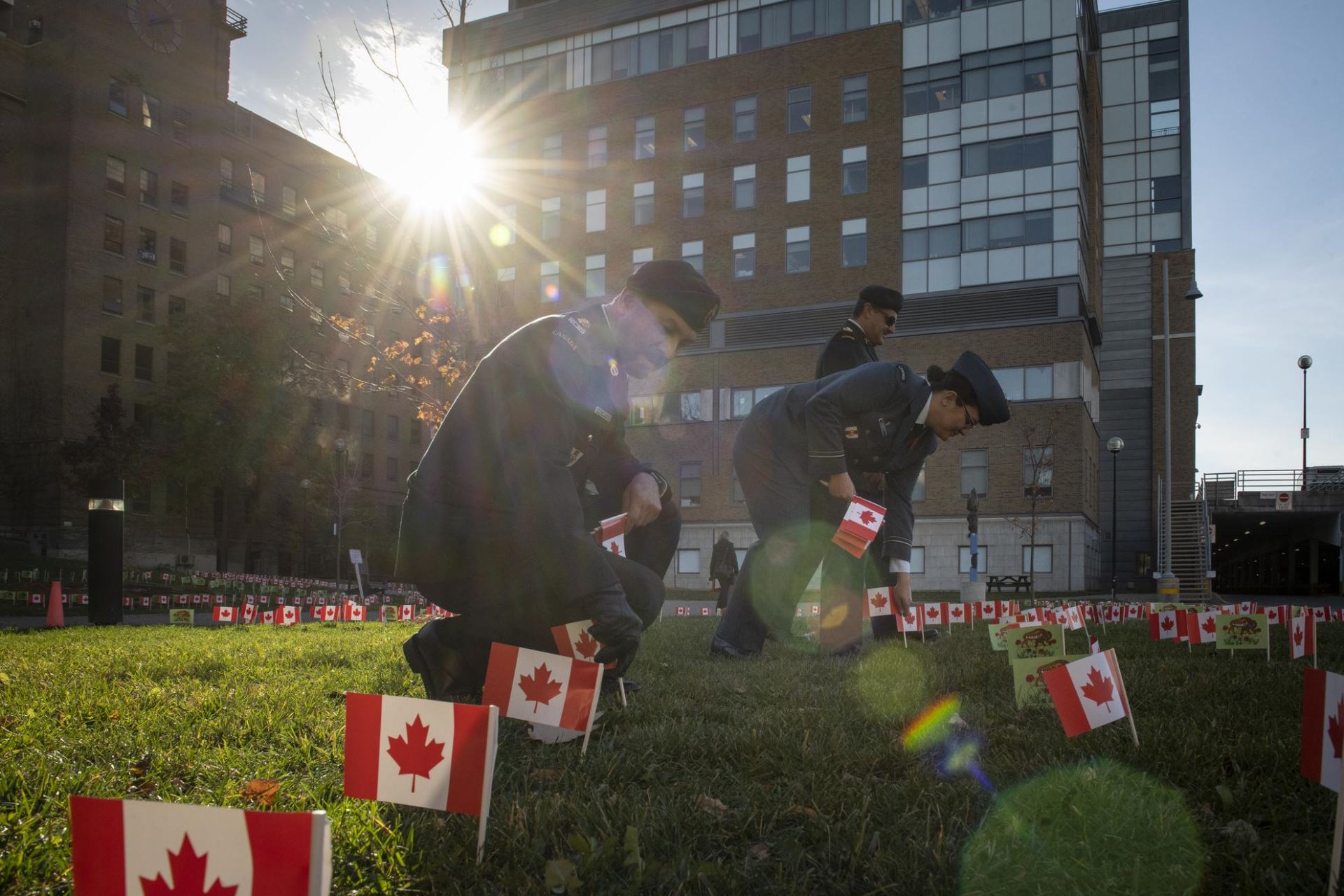
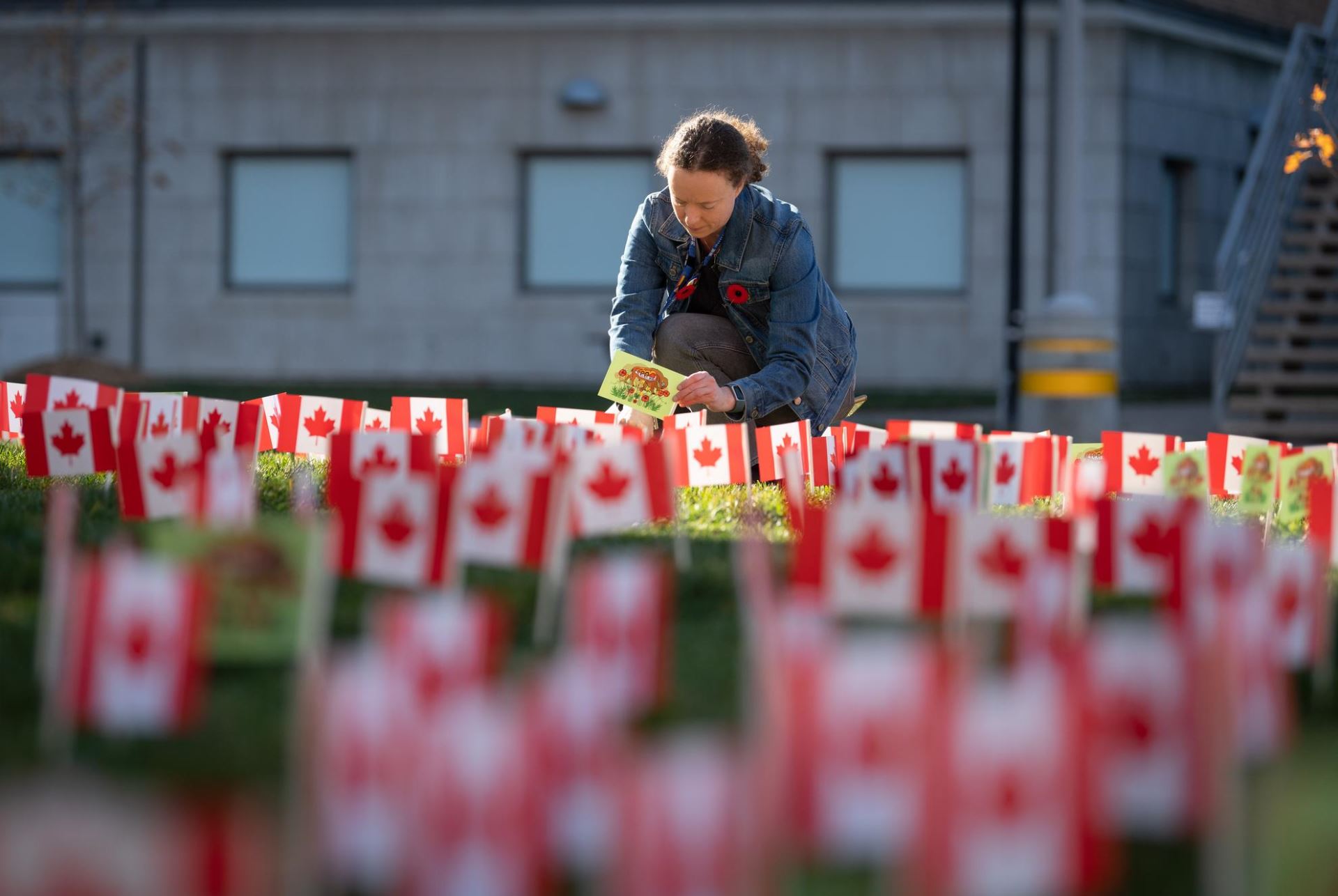
Indiegnous Veterans Day
Sunnybrook honours the contributions of Indigenous Veterans to Canada’s military.
For Indigenous Veterans Day, our grounds staff reproduced Philip Cote’s artwork that was created to commemorate the long tradition of service and sacrifices in war of the First Nations, Métis and Inuit people of Canada. Philip Cote is an Indigenous artist, activist, educator, historian, cultural advisor and Ancestral Knowledge Keeper from Moose Deer Point First Nation. He is Shawnee, Lakota, Potawatomi, Ojibway, Algonquin and Mohawk.
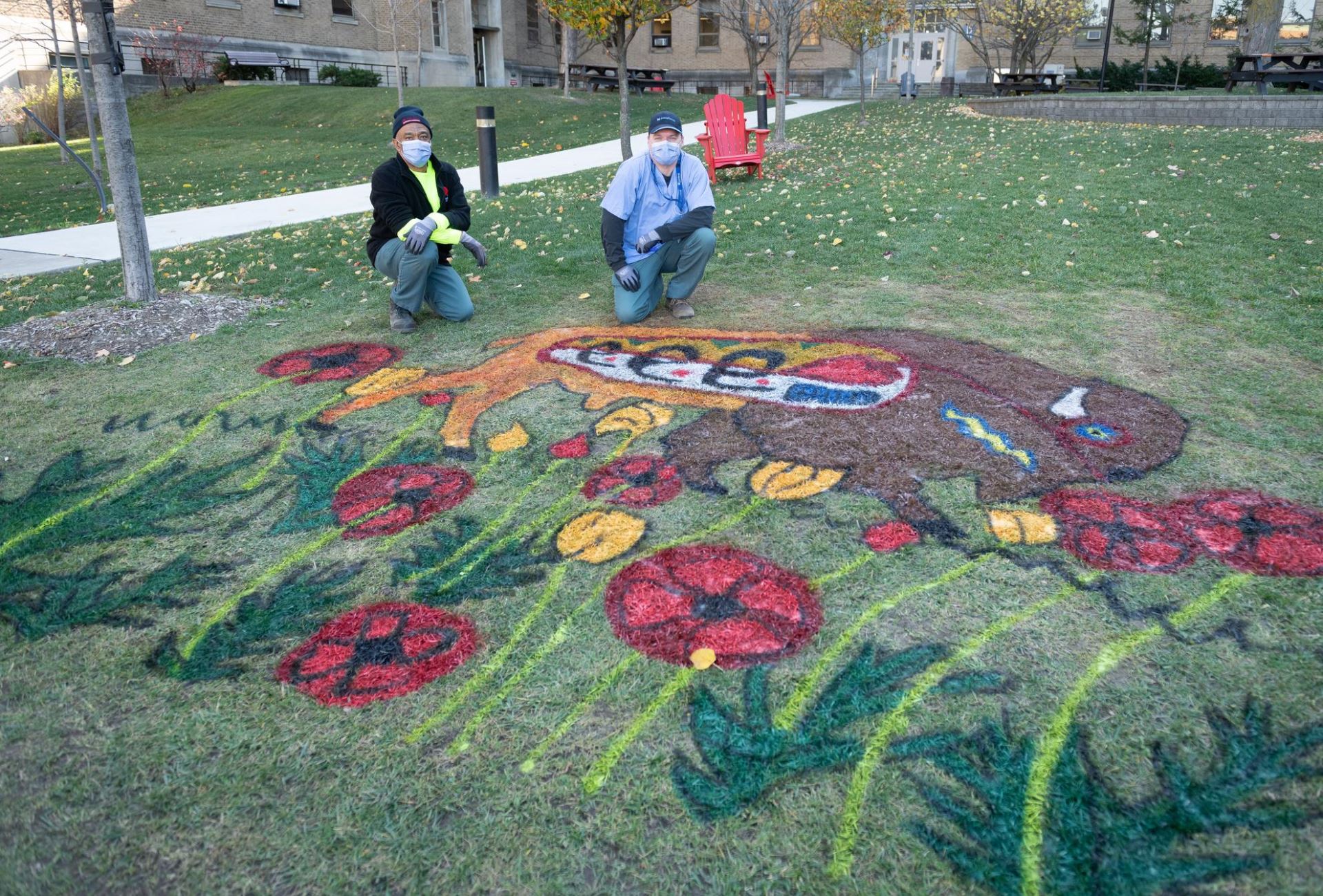
Sunnybrook staff gathered for a beading workshop led by Joanna Diindiisikwe Simmons, special project coordinator in the Pregnancy and Infant Loss (PAIL) Network and Ojibwe artist.
During the session, Joanna guided staff on how to make a beaded poppy for Indigenous Veterans Day and Remembrance Day.
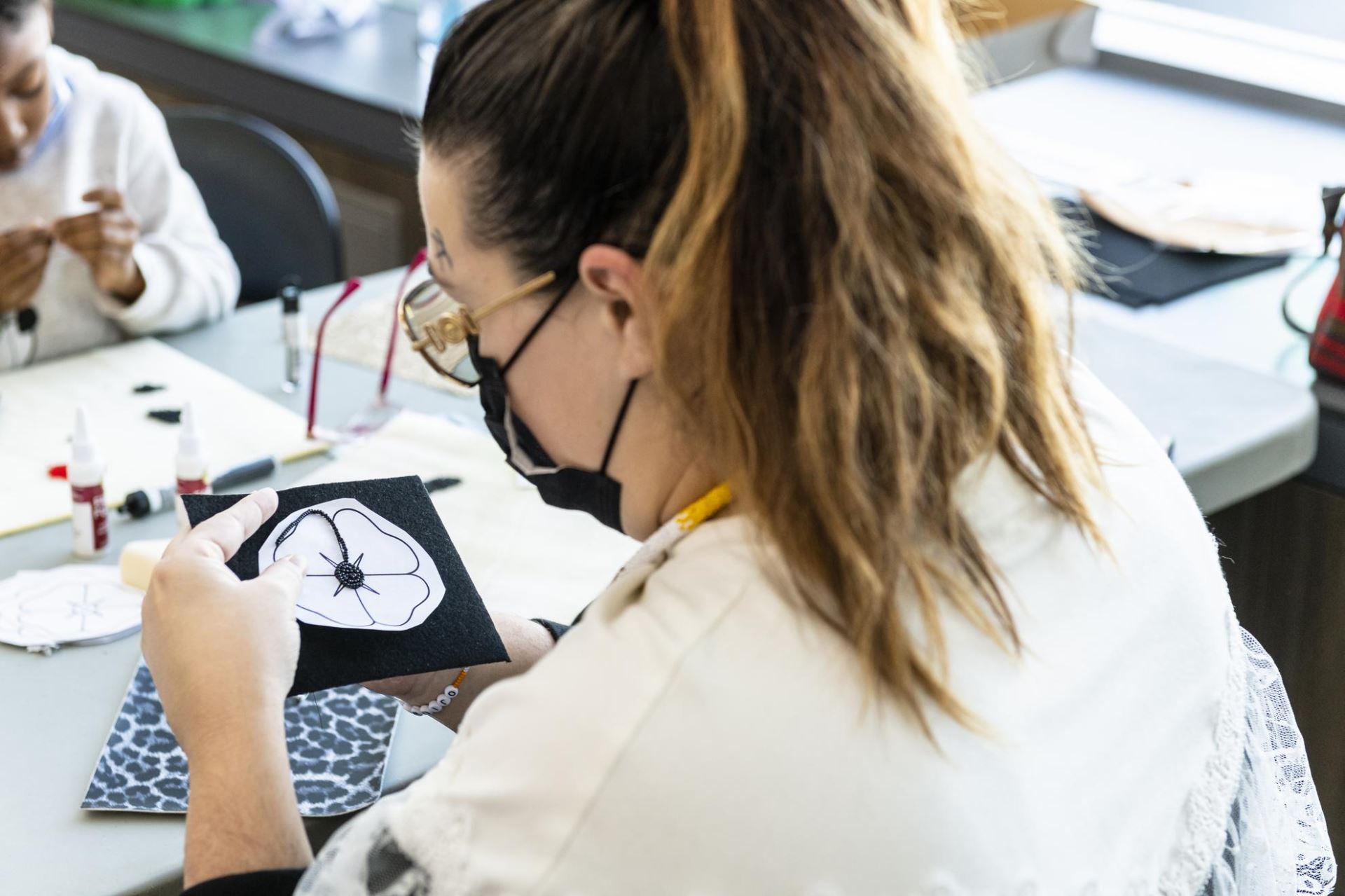
Remembrance Day Service
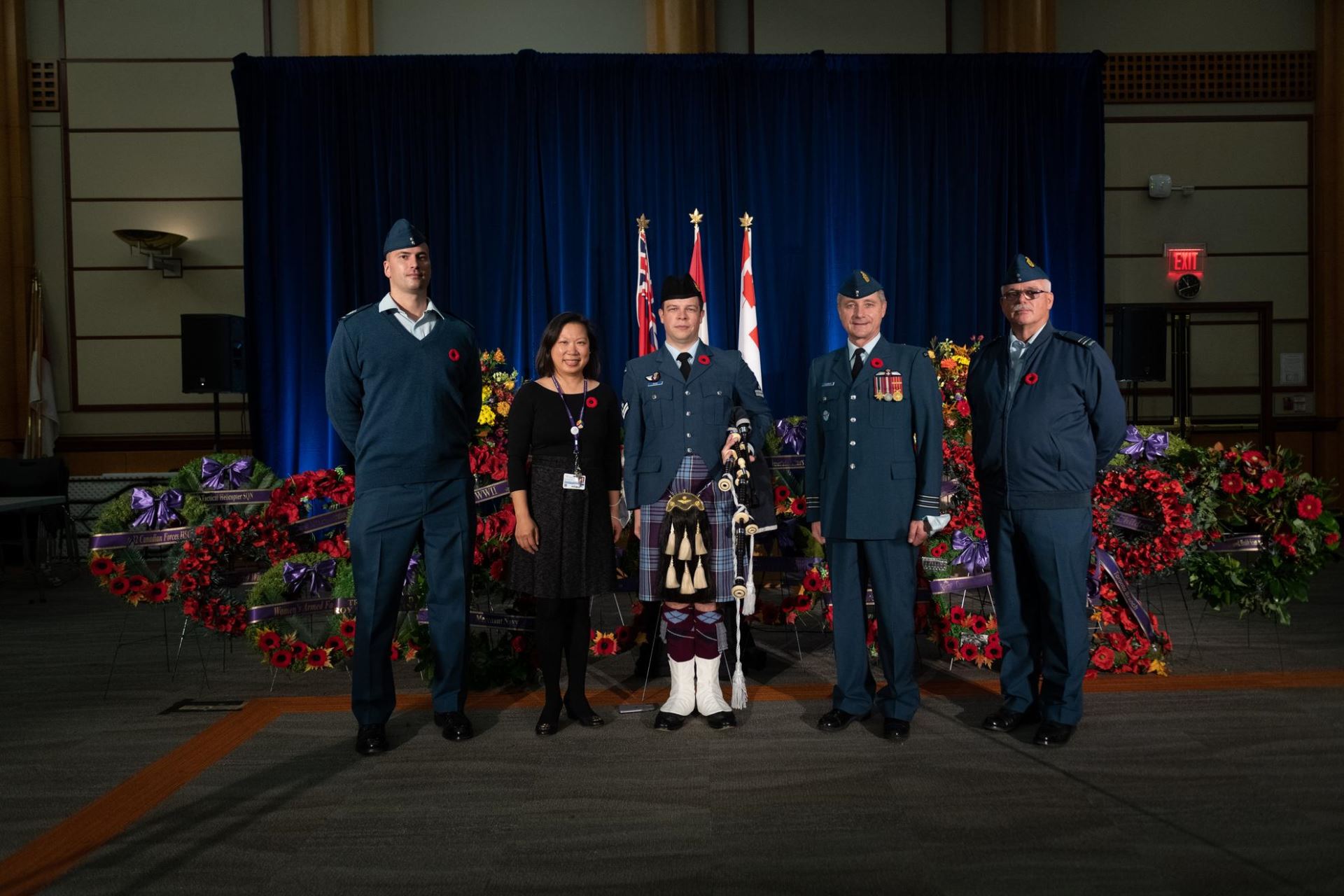
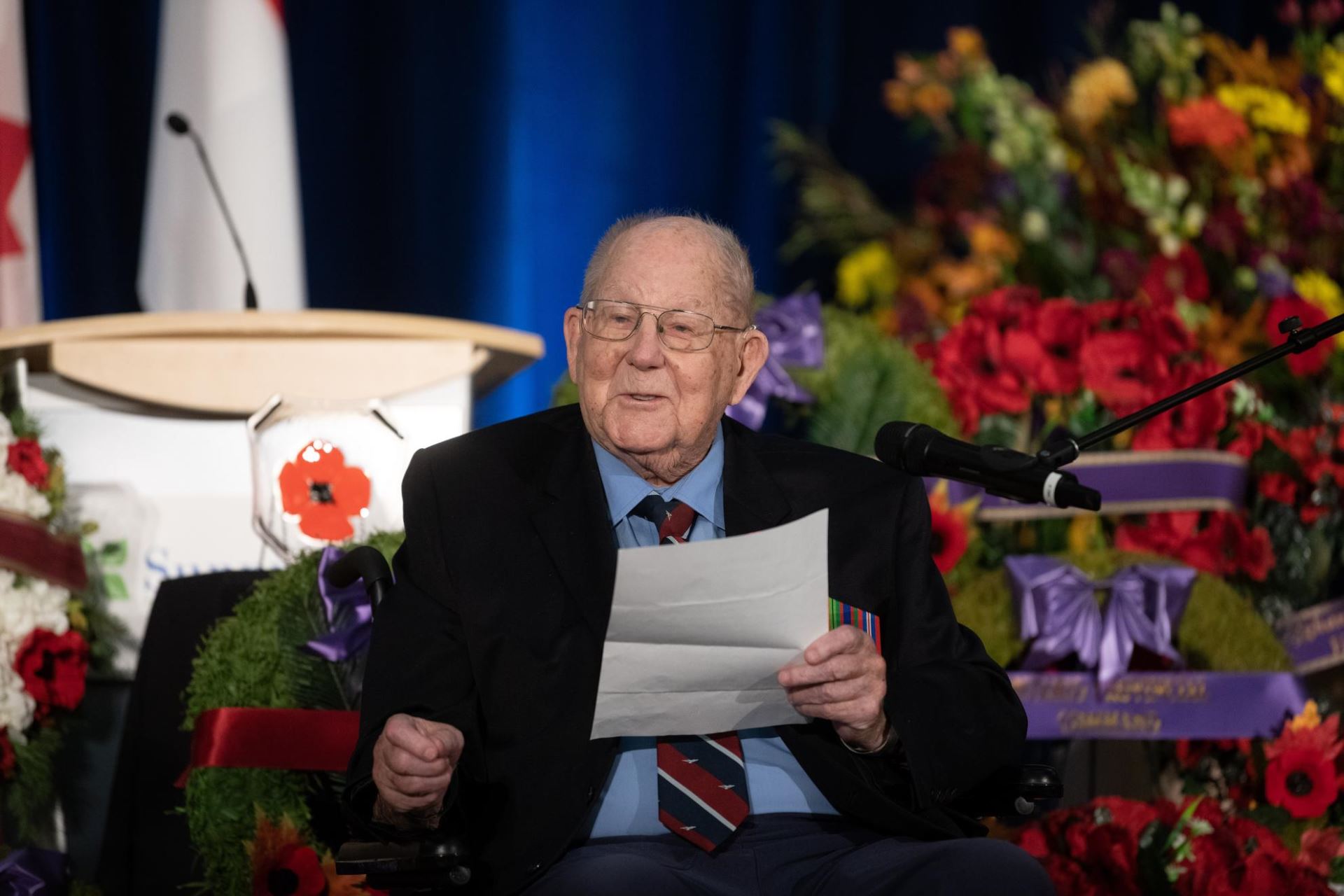
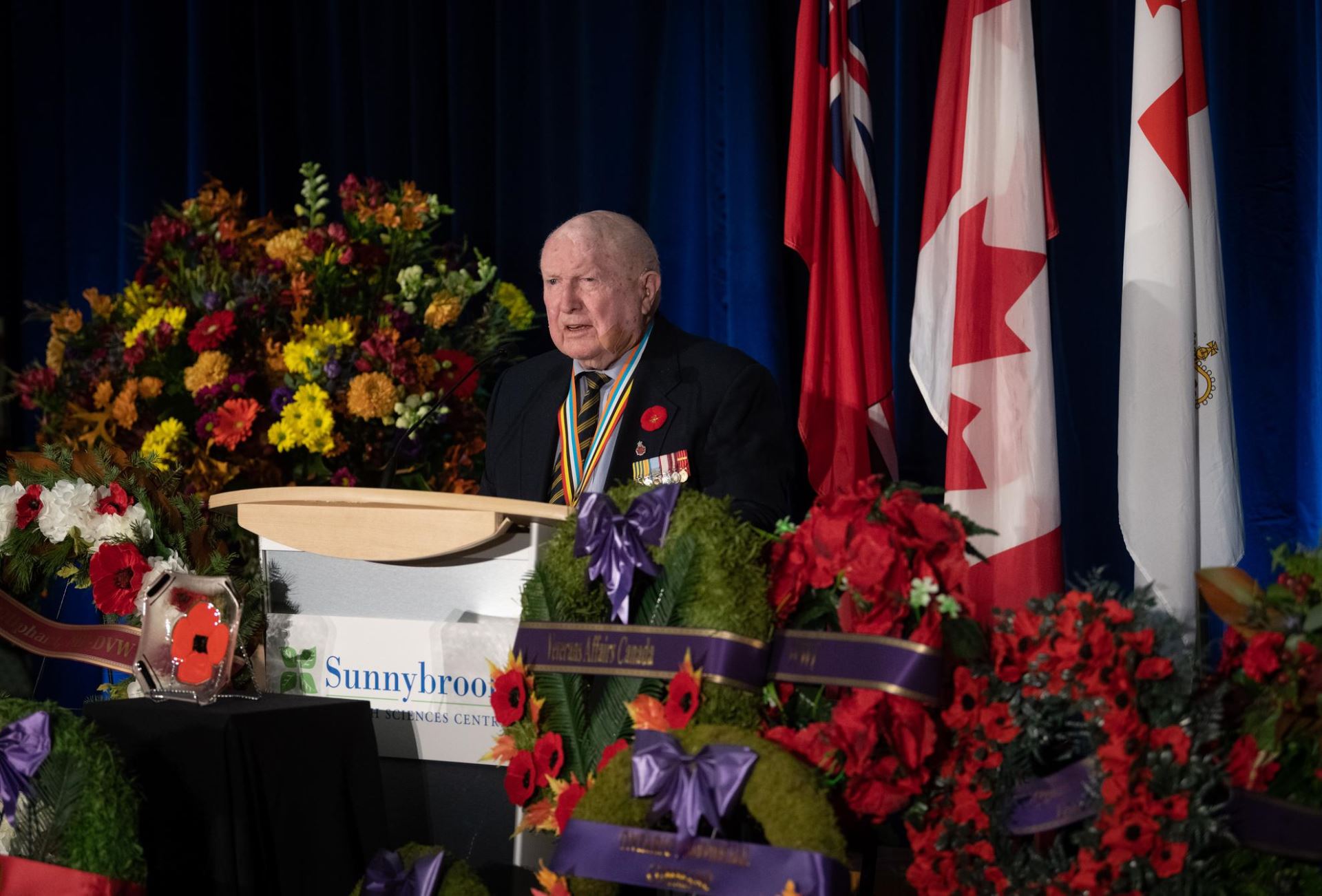
Procession to the Cenotaph
Jeremy Bullen, CD, Master Corporal Ret’d, Electrical Mechanical Engineers, and fire prevention coordinator at Sunnybrook, lays a wreath for Indigenous Veterans for the first time at Sunnybrook’s Remembrance Day Cenotaph Service. More than 7,000 First Nations soldiers fought in the First and Second World Wars and Korean War (plus an unknown number of Inuit and Métis and other Indigenous people). Upon return, many were denied access to government services available to other Veterans while their status and rights as an Indigenous person were also taken away.
